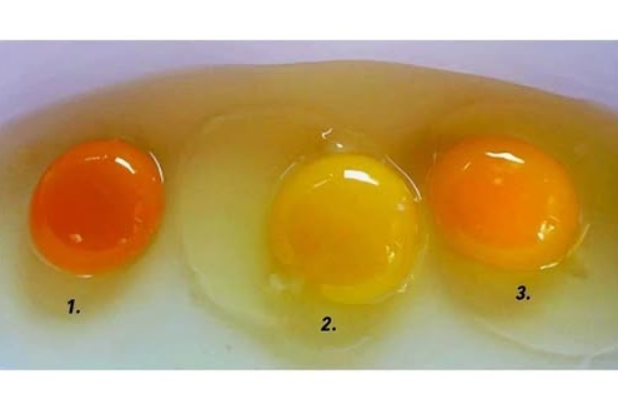When selecting eggs, the source plays a crucial role in their quality. Here’s a look at different types of eggs and how to recognize the healthiest options.
Pastured Eggs – Type #1: The Nutrient Powerhouse
Overview:
Pastured eggs are considered the best quality. Hens raised in pastured environments roam freely, foraging on grasses, insects, and seeds.
Rich in vitamins A, D, and E, which are vital for immune function and bone health.
High in omega-3 fatty acids, promoting heart health.
Health
Color and Quality:
Dark orange yolks indicate a high level of carotenoids and xanthophylls, antioxidants that help reduce inflammation and support eye health.
Taste:
Many people find that pastured eggs have a richer, creamier flavor thanks to the hens’ varied diets.
Caged eggs are the most common type found in supermarkets, sourced from hens kept in cramped conditions and primarily fed a grain-heavy diet.Poultry
Limited Nutrition:
A basic diet of wheat and corn results in paler yolks and fewer essential nutrients.
Hens’ Health:
Poor living conditions increase stress levels, adversely affecting both the hens’ health and the quality of the eggs.
Color and Quality:
Pale yellow yolks indicate a lack of dietary diversity and lower nutrient content, including omega-3s and vitamins A and E.
Free-range eggs come from hens that have more freedom than caged hens, often having access to outdoor spaces while mainly eating grains.
Moderate Nutrition:
Free-range hens may occasionally eat insects, resulting in yolks that are darker than those of caged eggs but lighter than pastured ones.
Vitamins & Supplements
Healthier Option:
These eggs typically contain more vitamin A and omega-3 fatty acids compared to caged eggs, making them a solid choice if pastured eggs are not available.
Taste and Quality:
Free-range eggs offer a balanced flavor that falls between the richness of pastured eggs and the milder taste of caged eggs.
Nutritional Comparison: Pastured vs. Free-Range vs. Caged Eggs

